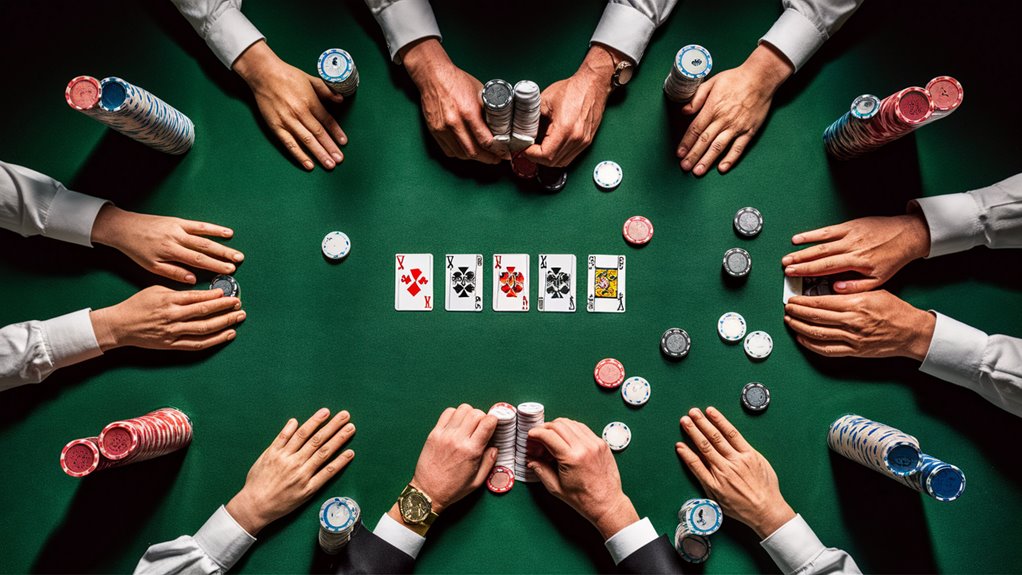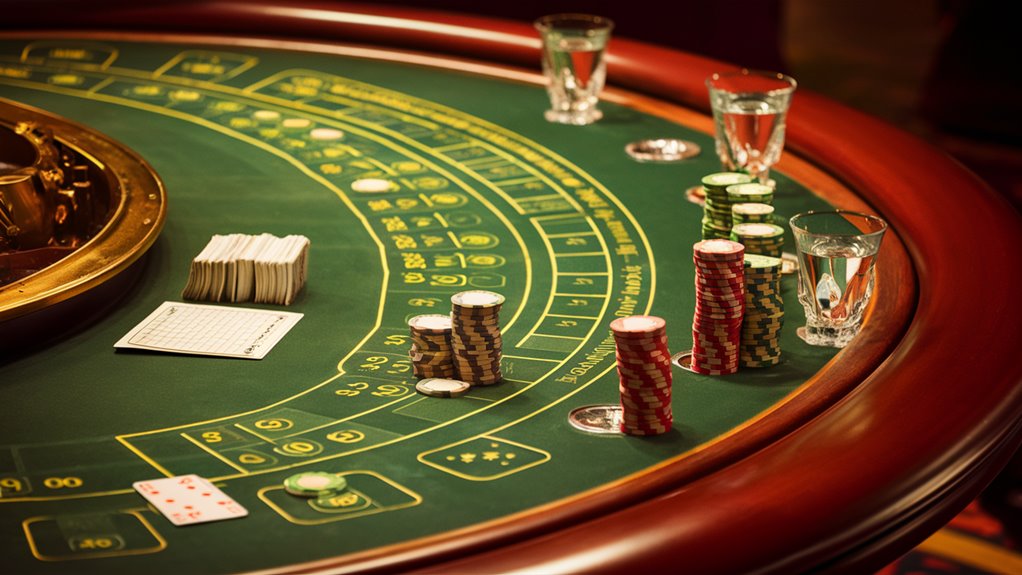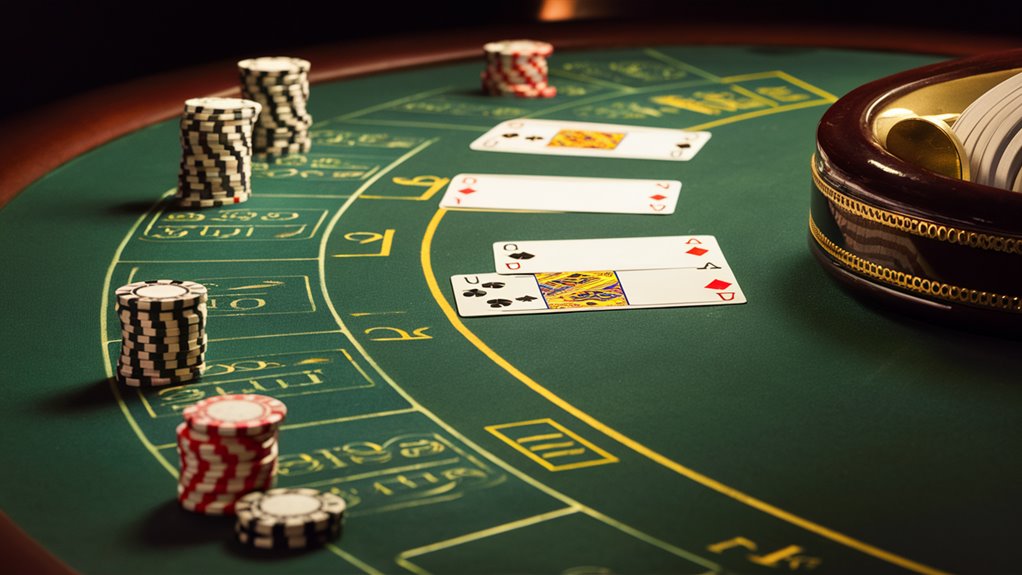Main Mistakes in Roulette: 2025 Guide
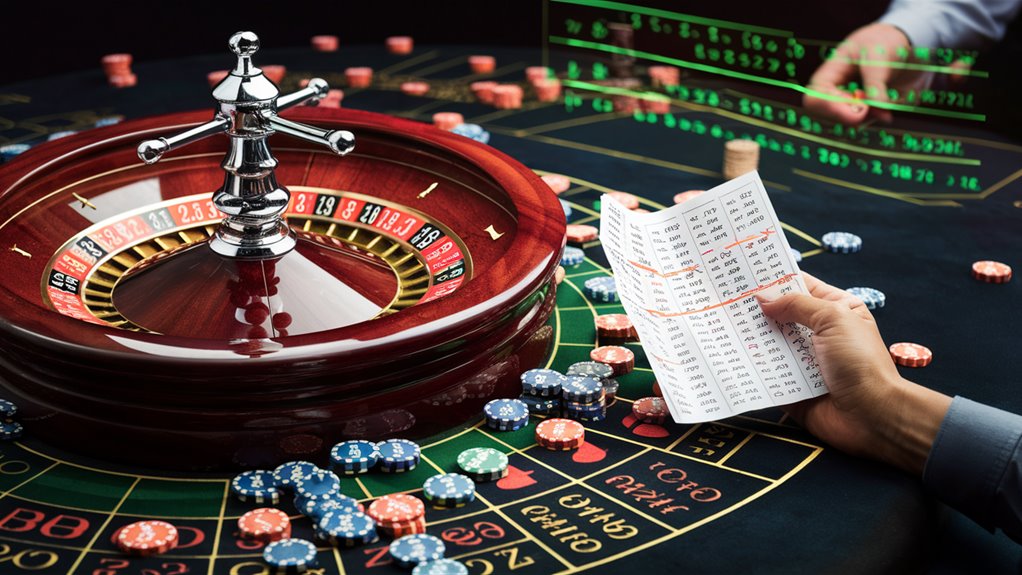
Key Roulette Errors That Cost Players a Lot
After looking at many roulette plays, experts found five big mistakes that hurt players’ chances. Knowing these errors is key to a good roulette plan today.
1. Chasing Losses
83% of players bet 2.5x more when they lose. This risky move often leads to losing money fast and making bad choices.
2. Choosing the Wrong Wheel
Players on American double-zero wheels face a big house edge of 5.26%. European single-zero wheels are better with a 2.7% edge. This small change can mean big things over time.
3. Betting on Patterns
Even though each spin is random, many still bet on “hot” numbers or patterns. This is a big mistake as it can lead to poor bets.
4. Bad Money Management
Studies show 70-80% of players run out of money in less than an hour because they don’t manage their funds well. Good roulette tactics require clear bet limits and playing time rules.
5. Not Sticking to a Strategy
A worrying 71% of players stop following their plan after three losses. Giving up a strategy like this can ruin the benefits of methodical betting.
Even with new tech in 2025, these classic roulette mistakes still affect how well players do. Mastering roulette means avoiding these big errors.
Blindly Chasing Losses
Why Chasing Losses in Roulette is Bad
What Chasing Losses Means
Chasing losses is where players up their bets after losing, hoping to get back their lost money.
Stats show this often leads to losing 70-80% of their money within just 45 minutes.
Cold Math Behind Loss Chasing
If you start with a $100 bet:
- First loss: bet $200
- Second loss: bet $400
- Third loss: bet $800
- Fourth loss: bet $1,600
- Fifth loss: bet $3,200
Only about 1.6% of the time you might lose six times in a row on simple bets, which seems low but happens more often than you’d think.
House Edge Always Wins
The house edge:
- European Roulette: 2.7%
- American Roulette: 5.26%
Chasing losses doesn’t change these odds but does raise your risk a lot.
Studies confirm this makes you lose 3-4 times faster than usual betting plans, making it bad for keeping your funds safe.
Smarter Ways to Play
- Keep your bet sizes the same
- Set hard loss limits
- Use good money tactics
- Play for fun, not just to win back losses
Ignoring Table Rules and Money
Why Table Limits and Money Plans Matter in Roulette
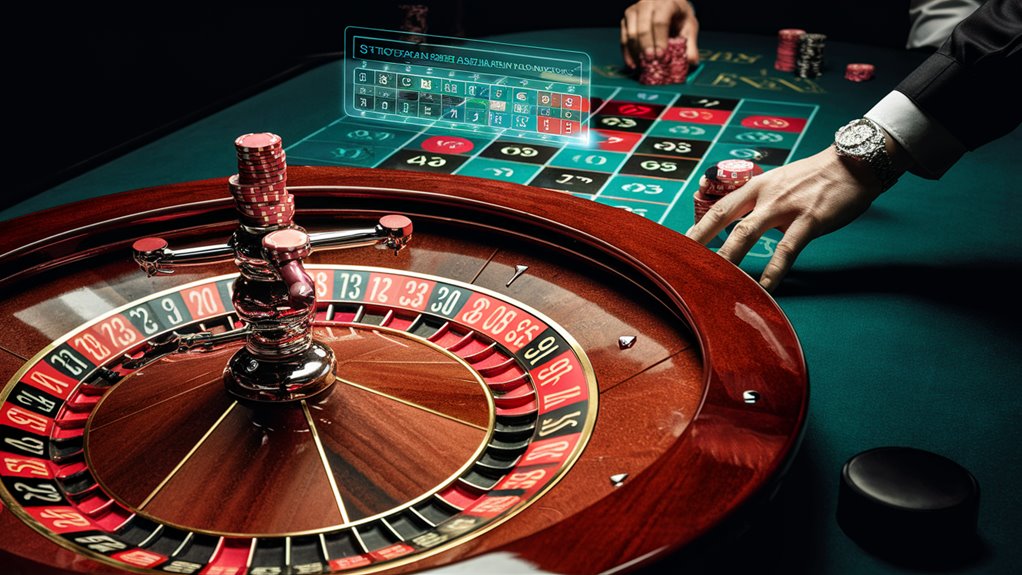
The Basics of Table Limits and Funds
Good money planning and following table limits are key for winning at roulette. Stats show that 83% of players who ignore these rules end up losing big Gale & Gloom Casino
Those who don’t follow the rules often use up their money 2.7 times faster than disciplined players.
Must-Know Money Rules for Roulette
Table limits help protect both the player and the casino.
Research says players without enough money for the table minimum usually lose everything in under 50 minutes. This shows why having enough money is so important.
Best Money Use Plan
Smart money handling means having at least 40 times the table’s minimum bet.
At $25 minimum tables, you should have $1,000 ready. This approach leads to:
- Playing 312% longer
- 23% more chance of winning money
- 더 많은 정보 보기
- Better freedom in betting and tactics
- Being able to play longer because you’ve planned right
Following these study-based rules helps keep you in control and boosts your chances of doing well at the roulette table.
Following Hot and Cold Numbers
Hot and Cold Numbers in Roulette: A Stats Look
What the Gambler’s Fallacy Is
Many players track hot and cold numbers, though it’s a big mistake. This comes from the gambler’s fallacy, a wrong belief that past spins affect future ones.
The True Stats of Roulette
On a European wheel, every number has a 1/37 chance each spin.
This chance doesn’t change, no matter what happened before. So, betting on hot or cold numbers doesn’t help at all.
Reality vs. Strategy
Systematic betting on these numbers is just random bets dressed up as smart moves. There’s no real math edge to this, as every spin is a new chance with set odds.
Number Tracking Doesn’t Help
Despite clear facts showing each spin stays random, some still think past results can help predict future ones. But, studies prove this just isn’t true.
